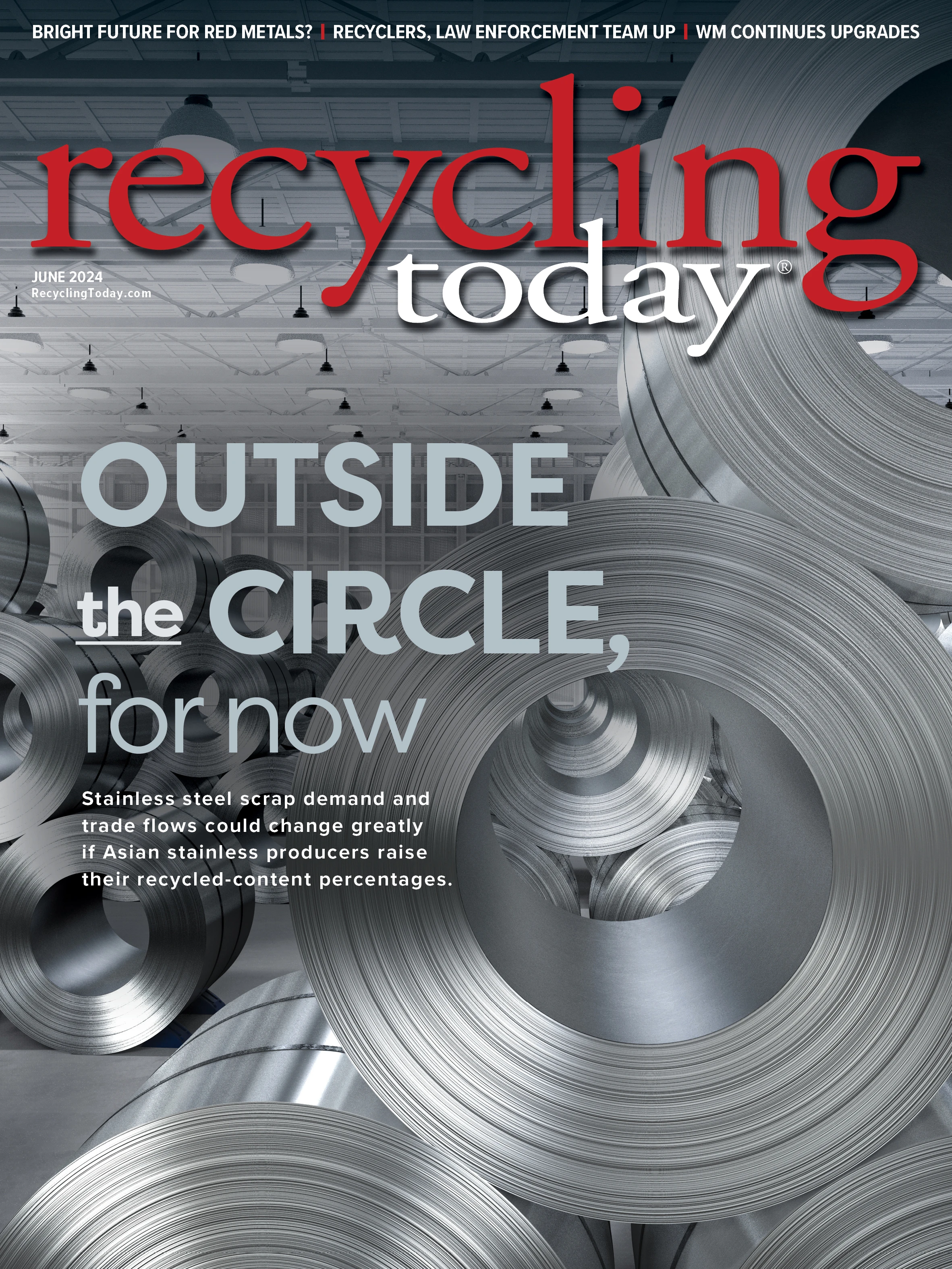Maddie Carlson
Sustainability consultant at Shapiro Metals

Maddie Carlson
Maddie Carlson’s interest in sustainability began at a young age. Growing up, she says she always enjoyed her science classes and that her favorite days coincided with the delivery of National Geographic. She eventually pursued degrees in environmental studies and economics at Eckerd College in St. Petersburg, Florida, a school she chose because of its sustainability culture and environmental programs.
When the COVID-19 pandemic put her postgraduate plans on pause, Carlson began working as a project manager for a legal research center.
“The legal research really helped me with a background in policy,” she says.
Carlson wrote stories for a sustainable construction startup website on the side and familiarized herself with waste reduction strategies. After a year, she became a research analyst for an environmental consulting company where she grew her skills by consulting for municipal solid waste departments, including measuring contamination in recycling, developing local recycling education initiatives and completing financial audits.
“That was really helpful because it gave me firsthand experience at a lot of these recycling sites, whether it was the MRFs [material recovery facilities], landfills [or] waste energy composting centers,” Carlson says. “It was great that I got a hands-on experience.”
When she eventually began her career as a sustainability consultant with St. Louis-based metals recycling company Shapiro Metals, her previous experience made it an easy transition. Today, Carlson is responsible for developing recycling programs for new clients by researching viable outlets for recycled material and analyzing CO2 emissions.
“It is so gratifying to see the number of tons we’ve helped reduce, the amount of recycled material we’ve increased or the volume that we’ve helped divert from the landfill,” she says.
In the following interview, Carlson discusses challenges facing the recycling industry and ways it can move forward."It is so gratifying to see the number of tons we’ve helped reduce, the amount of recycled material we’ve increased or the volume that we’ve helped divert from the landfill.”
RT: What are some of the biggest issues impacting the industry today?
MC: A big issue is a lack of connection between manufacturers and recyclers. When products are made, and that could be anything from airplanes to microwaves, there is not a lot of forethought of how the product [is] going to be disposed of. ... When recycling isn’t thought of, it makes it really hard to do down the line.
There is a lack of clear communication to consumers as well. A big misconception is people see the recycling symbol … and just assume that means it’s recyclable. Well, that is just not the case. … There’s a big issue with companies saying something is recyclable, but they are not checking with recyclers to see if they actually have the equipment or the means or the labor to separate and process those types of materials.
RT: What are the next steps?
MC: Policies will help this a lot. That will help push the urgency to make some of these changes.
Having strict guidelines coming from recyclers would be really helpful, and clear communication of what they can recycle so manufacturers have a good idea of what [is] recyclable … can help [manufacturers] ... make changes in their process or product.
I would love to see more initiative from companies developing environmental teams and making that a priority, not as a side task for someone who already has a full schedule on their plate. You can see the shift happening. For example, ISRI [Institute of Scrap Recycling Industries] changed their name to ReMA [Recycled Materials Association]. That’s a great identifier of where we are headed for the next couple of years.

Explore the June 2024 Issue
Check out more from this issue and find your next story to read.
Latest from Recycling Today
- Orion ramping up Rocky Mountain Steel rail line
- Proposed bill would provide ‘regulatory clarity’ for chemical recycling
- Alberta Ag-Plastic pilot program continues, expands with renewed funding
- ReMA urges open intra-North American scrap trade
- Axium awarded by regional organization
- Update: China to introduce steel export quotas
- Thyssenkrupp idles capacity in Europe
- Phoenix Technologies closes Ohio rPET facility





